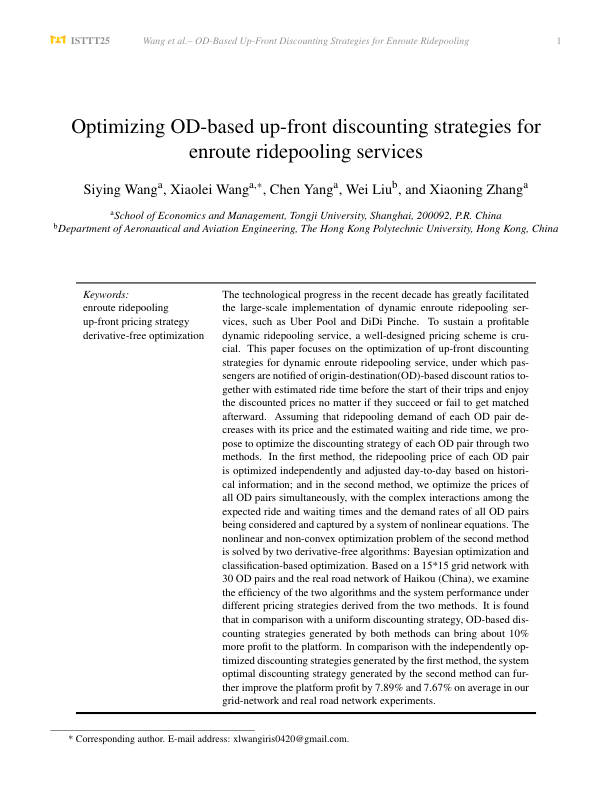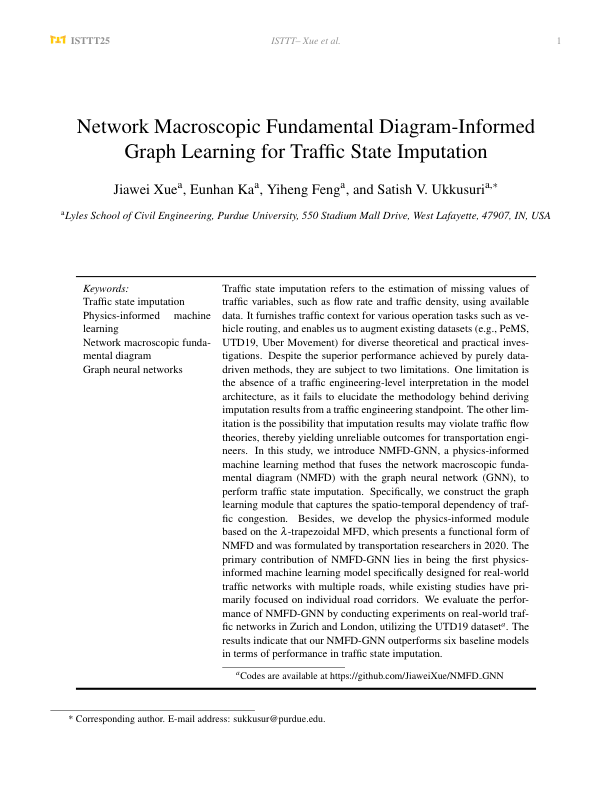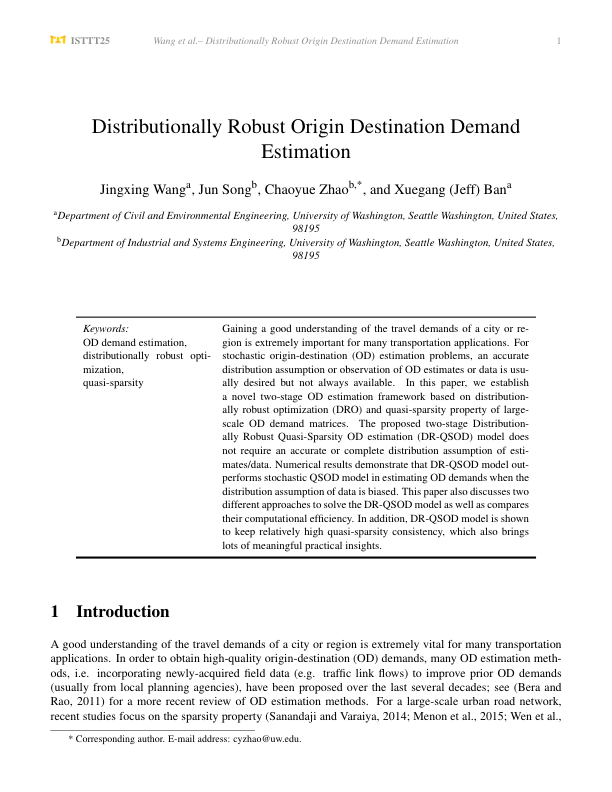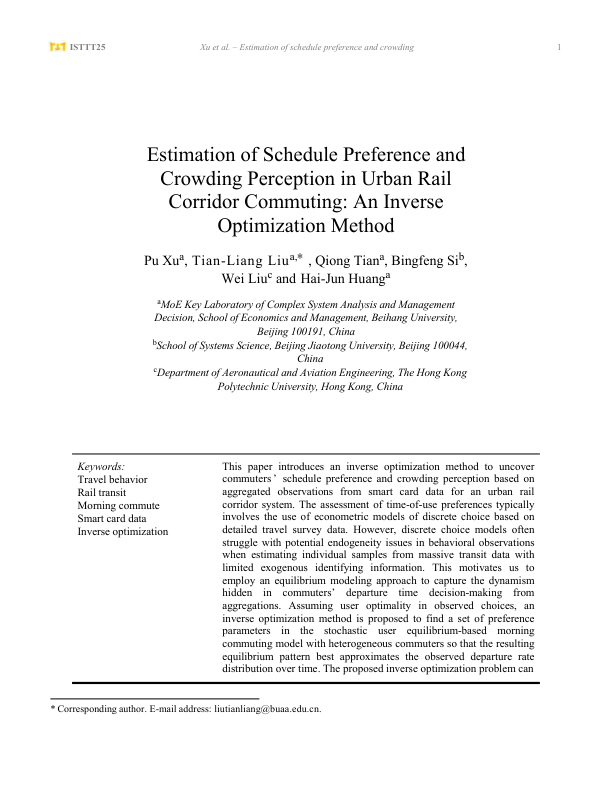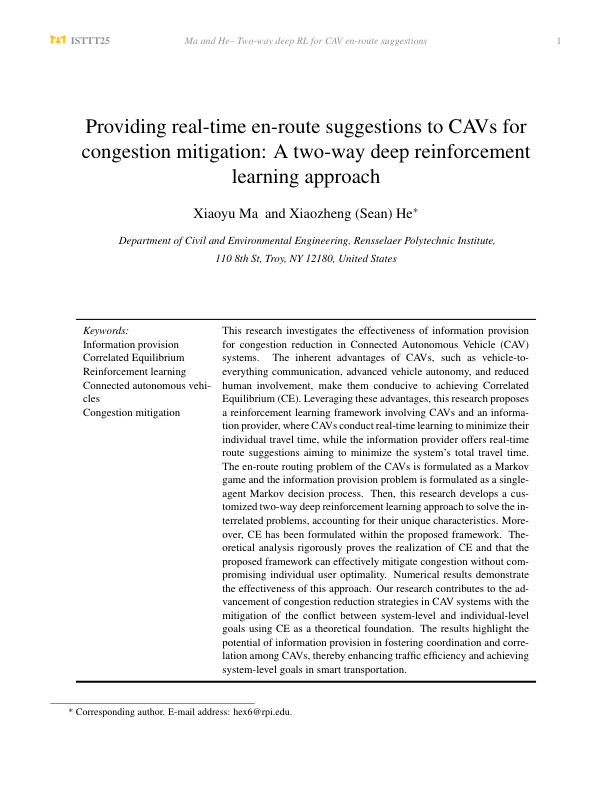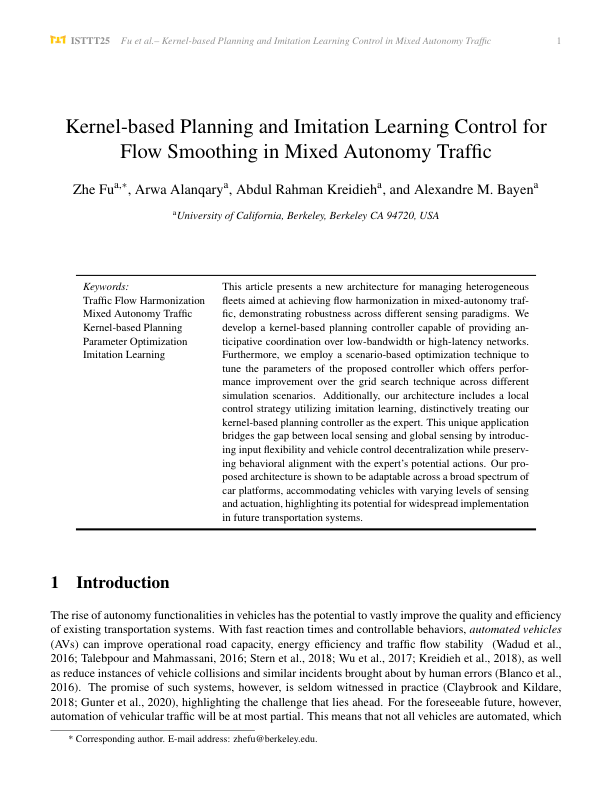Lightning Talk 1: Combining Time Dependency and Behavioral Game: A Deep Markov Cognitive Hierarchy Model for Human-Like Discretionary Lane Changing Modeling
Title: Combining Time Dependency and Behavioral Game: A Deep Markov Cognitive Hierarchy Model for Human-Like Discretionary Lane Changing Modeling
Authors: Kehua Chen, Meixin Zhu, Lijun Sun, Hai Yang
Abstract: Human drivers take discretionary lane changes when the target lane is perceived to offer better traffic conditions. Improper discretionary lane changes, however, lead to traffic congestion or even crashes. Considering its significant impact on traffic flow efficiency and safety, accurate modeling and prediction of discretionary lane-changing (LC) b...
Keywords: Discretionary lane changing; Game theory; Hidden markov model; Cognitive hierarchy




